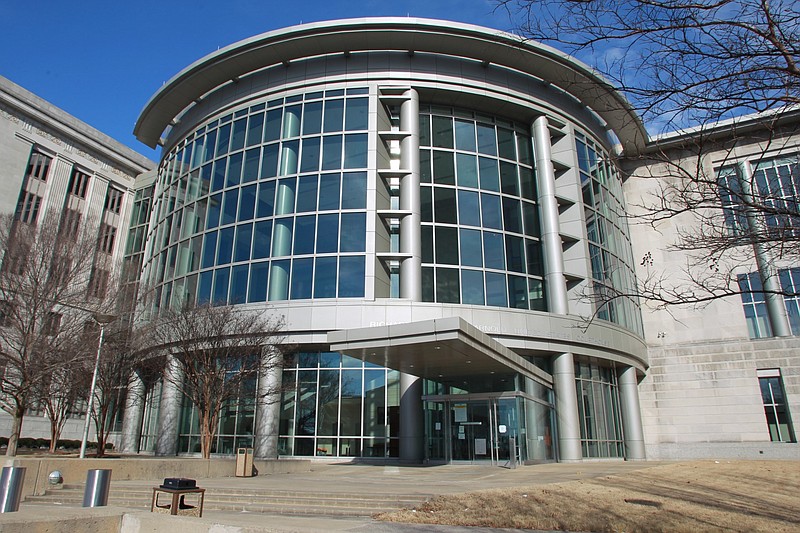The insurance fraud trial of an Alexander physician accused of authorizing high-cost prescriptions for patients he never treated got underway Thursday with testimony from a medical sales representative who pleaded guilty to being a part of the conspiracy.
Dr. Joe David May, also known as "Jay May," is on trial after being indicted federally on charges of conspiracy, wire fraud, mail fraud, violating the anti-kickback statute, aggravated identity theft, lying to the FBI, and falsifying records in the federal investigation. May was originally charged in January 2020 with 43 counts of fraud, obstruction and other federal charges along with Derek Clifton, a former Baxter County basketball coach, in a 41-page indictment.
In court Thursday, Albert Glenn Hudson of Little Rock, a friend of Clifton's and a medical sales representative described by prosecutors as the ringleader -- the "quarterback" -- of the conspiracy, testified under direct examination by Assistant U.S. Attorney Alex Morgan for more than five hours. During his testimony, Hudson outlined how the scheme worked with pre-filled prescriptions entered for numerous patients who were actively recruited from beneficiaries insured by Tricare, the U.S. military insurer.
Hudson said over the course of the conspiracy during 2015 -- before Tricare caught on and began looking into the compound prescription scheme -- he and others involved in the scheme sold some $12 million worth of compounded prescriptions to patients around the country.
Hudson said Tricare was targeted "because it was one of the only insurance companies paying for compounded drugs."
According to the U.S. Food and Drug Administration, drug compounding is the process of combining, mixing, or altering ingredients to create a medication tailored to the needs of an individual patient. Compounding includes the combining of two or more drugs. Compounded drugs are not FDA-approved.
In his opening statement, Morgan said the prescriptions Tricare paid for were rubber-stamped by May, who never saw the patients the prescriptions were intended for. He said the premise of the case, despite the financial complexities, boiled down to one thing.
"This case is about a doctor," Morgan said, "the defendant, rubber-stamping $4.63 million worth of prescriptions in the names of complete strangers, accepting cash kickbacks for it, lying to the FBI about it and then doubling down on that lie by creating phony medical records, all to make it seem like these prescriptions were for real patients and that they had been signed after the defendant evaluated them and determined that these drugs were really needed for them.
"In truth," Morgan continued, "you're going to see and you're going to hear that, in fact, these prescriptions were rubber-stamped as part of a prescription assembly line."
Morgan said when Tricare paid the claims presented for payment, it did so "believing that these prescriptions were for real patients."
Morgan said had Tricare known the prescriptions were presented without a physician's consult, or that they were not necessary, or that kickbacks were being generated for them, the military insurer would never have paid the claims.
He said in 2014, May issued no prescriptions for compounded drugs but that in the following year he prescribed such drugs for more than 150 different people by signing more than 200 prescriptions in those people's names, "for which Tricare paid over $4.63 million," and for which, he said, May deposited $15,000 for his efforts.
Shelly Koehler, May's attorney, dismissed Morgan's claims, saying that he had made a good case against Hudson, Clifton and Donna Crowder, another co-conspirator who is expected to testify during the trial, but not against May himself.
"Dr. May had no idea whatsoever what the cost was of these prescription drugs," Koehler said, and exhorted the jurors to "follow the money," saying, "Dr. May never received a penny for these things."
Koehler said May signed prescriptions for pain cream compounds after Clifton -- whom she described as a "master manipulator" -- told him the creams could help alleviate opioid addiction symptoms.
She said as a hospitalist, May was earning over $350,000 a year.
"Is it reasonable to think that Dr. May would commit fraud for five or ten thousand dollars?" she asked.
Hudson returns to the stand this morning for the conclusion of his testimony under direct examination, then for cross-examination by Koehler.
